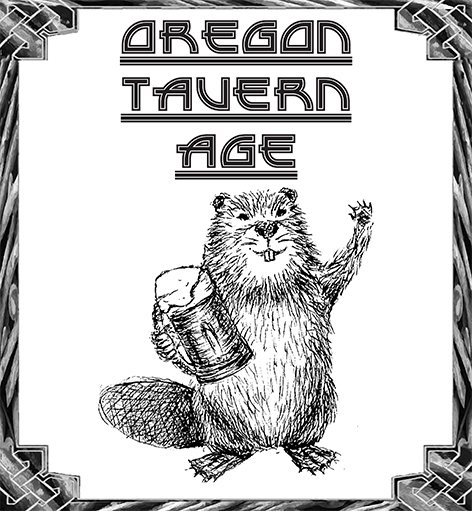Oregon Tavern Age: Smith River Tavern
I was driving a remote and winding road up Smith River north of Reedsport. It was a Thursday in December, around 11 in the morning, My destination: a waterfalls some 30 miles into the upper reaches of the watershed.
I passed farms, barns, houses, trailers, trees, creeks, machinery, livestock, and all manner of old and discarded things in overgrown fields and yards. Whenever I explore one of these isolated river valleys on the Oregon Coast, places where it often rains 80 inches a year, I shake my head in utter astonishment: what in the hell goes on here? How do these people live?
Rain started falling. It was turning darker green and gray. I rounded a sharp corner, looked right, and there it was. No, it could not be there. A tavern! Surely an Oregon Tavern Age joint! And I thought I had seen them all.
I saw a sign: Smith River Grocery and Tavern. I saw beer neons glowing. The damn places was open. After seeing the falls, I’d explore the tavern and get some grub.
An hour later, I stepped inside the Smith River Grocery. It was more of a museum than a store. I perused the meager offerings and then made my way through a side door into the tavern.
A fire was crackling in a corner wood stove. Two OTA men warmed themselves near it. One of them said hello. I noticed CNN playing silently on a couple screens. CNN in OTA country? Something was off, but in a good way, I thought.
Let me start my report of the Smith River Tavern by saying there wasn’t a single mention of Donald Trump, the person solely responsible for ruining the art of OTA storytelling.
I sat down at the bar. One of the men from the fire came around to serve me. The Smith River Tavern serves no beer on tap so I ordered a dark beer in bottle. I was hungry so I also ordered fries. The bartender cranked up the fryer and said it might take a while. I said I wasn’t in a hurry.
It turned out the bartender was the owner and a very nice guy. He bought the spread from his parents almost three decades ago and lived next door in a trailer. He had been attending law school at the University of Oregon when a jury acquitted OJ Simpson of double murder and he was done with the law right then and there and decamped to Smith River.
As I drank my beer and waited for the fries, I looked around the joint.
There was a sign that read: “My gun is safer than Ted Kennedy’s car.” Another sign read: “Ted Bundy was a Husky.
A snakeskin hung from the ceiling. I saw antique rifles and antlers on the walls. I also saw old logging tools, cans and bottles of long dead brands of beer doubtless favored by loggers, memorabilia depicting the plight of loggers during the spotted owl wars and photographs of gigantic logs felled by handsaws.
The owner/bartender was an excellent local historian and also candid about the poor prospects for the future of his business. He wanted to spruce up the compound and add this and that, but he was barely hanging on. How he managed to survive during the Pandemic was probably a miracle. I didn’t ask about it.
The place had incredible potential and the owner discussed some of the possibilities. He got me thinking about how to help him realize that potential. I pitched a few ideas, but they all required capital. The tavern was really in the middle of nowhere coastal Oregon, but for some reason I found that attractive. I think in the coming years, that’s where I want to live and write. I’ve had a taste of it and I like it.
But for now, responsibility in the city directs me. That won’t last forever.

